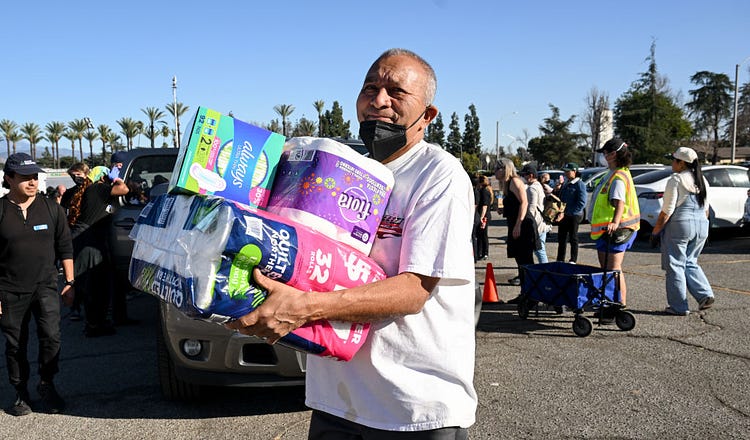
It turns out three things are inevitable: death, taxes, and politicians eager to stop so-called price gouging in the aftermath of a natural disaster. Whether it’s a hurricane in the Carolinas, an oil spill in the Gulf of Mexico, a devastating flood in New Orleans—or a catastrophic fire in Los Angeles—one of the first moves in the politician’s playbook is to condemn the greedy capitalists who exploit the misery of their fellow citizens by jacking up prices on basic necessities.
Sure enough, here was Mayor Karen Bass on Sunday, fresh from her trip to Ghana, taking to X to proclaim that the city would have “no tolerance” for anyone who “illegally hiked rents and prices.” California attorney general Rob Bonta chimed in: “We should not be engaged in price gouging, whether it’s groceries or rent. We are very serious about this.” And Governor Gavin Newsom signed an executive order that aims to prevent price gouging on building materials, storage services, and other essential supplies and services for the entirety of 2025.
At first glance, you can hardly blame them. After all, what kind of monster would take advantage of their neighbors’ desperation by hiking prices for necessities when the supply of those necessities is depleted? Is there anything worse than thinking about your profit margin in the midst of tragedy?
Actually, there is. Keeping prices low during a disaster by making it a crime to raise them will do far more harm than good.


